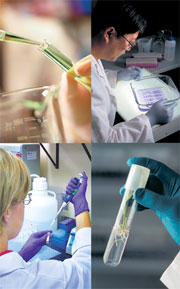
SEPTEMBER 2006
How to Make Research Soup (cover)
Santee Cooper
North Rhine- Westphalia: Biotechnology Pole Position
Invest in NRW
Italy's Life Sciences Sector is Gaining Momentum
Invest in Italy
Helping Our Families, Helping Our Environment, Helping Our Economy
Illinois: The Best for Biotech
All Access Pass to Biotechnology in Iowa
Iowa: Life Changing
Property Tax Relief Spurs Investment, Growth in Kansas
Kansas: As Big as You Think
Devens. Hit the Sweet Spot.
New Jersey is Where Life Science Lives
PSEG Area Development
San Jose: The Competitive Advantage
San Jose: Advancing the Life Science Revolution
Bioscience Jobs Bring More Economic Diversity...
Gainesville/Hall County Chamber of Commerce
Jacksonville Cornerstone Regional Redevelopment Partnership
Railhead Park
Miles & Stockbridge
Augusta, Georgia: An Ideal Spot to Start or Expand a Life Sciences Company
South Carolina Power Team
Manhattan, Kansas: a Bio Tech Recearch Powerhouse
El Salvador Works
Texas: The Spectrum at Clear Creek
Request Information

SPECIAL ADVERTISING SECTION
BIOTECH LOCATION STRATEGIES
BIOTECH LOCATION STRATEGIES
All Access Pass to Biotechnology in Iowa
